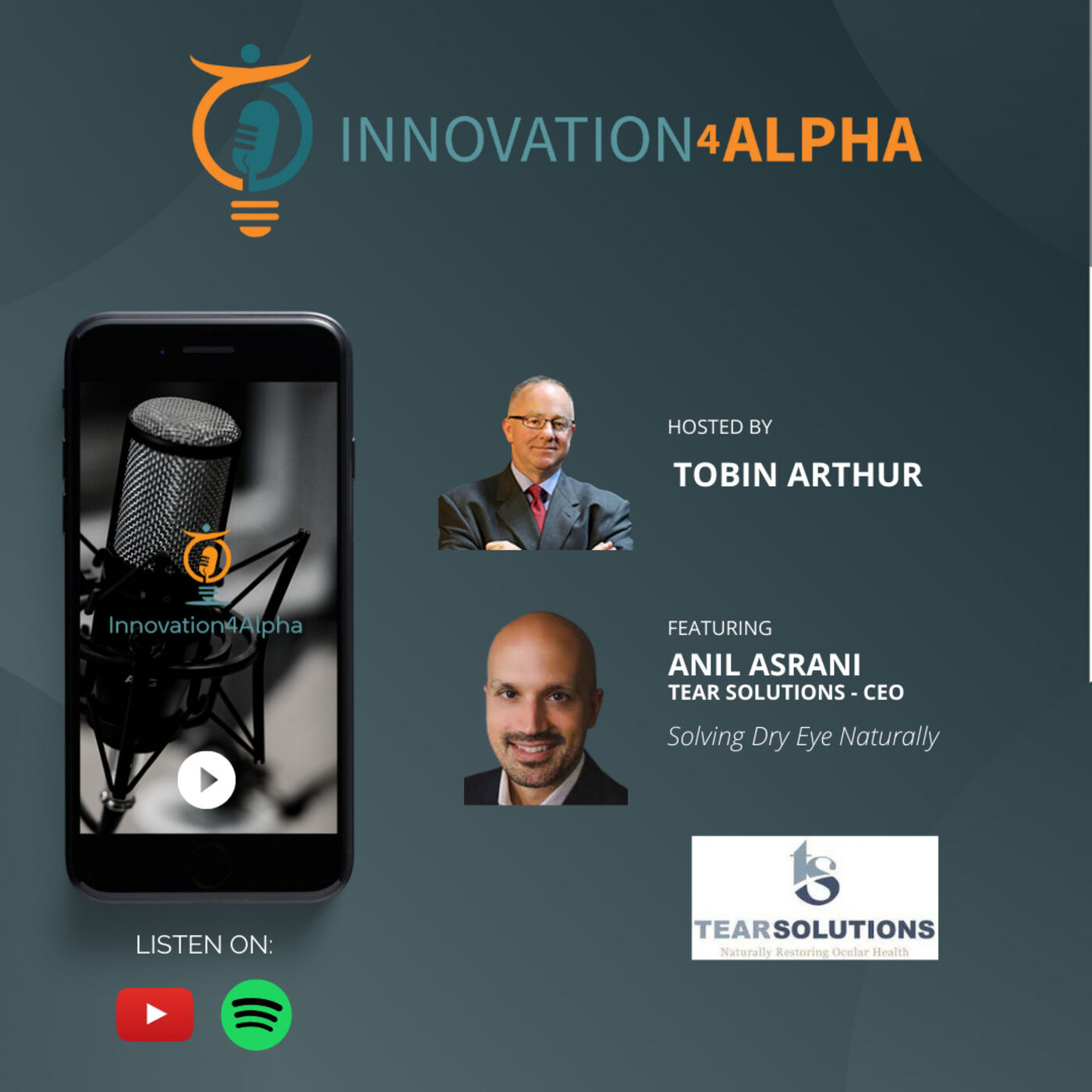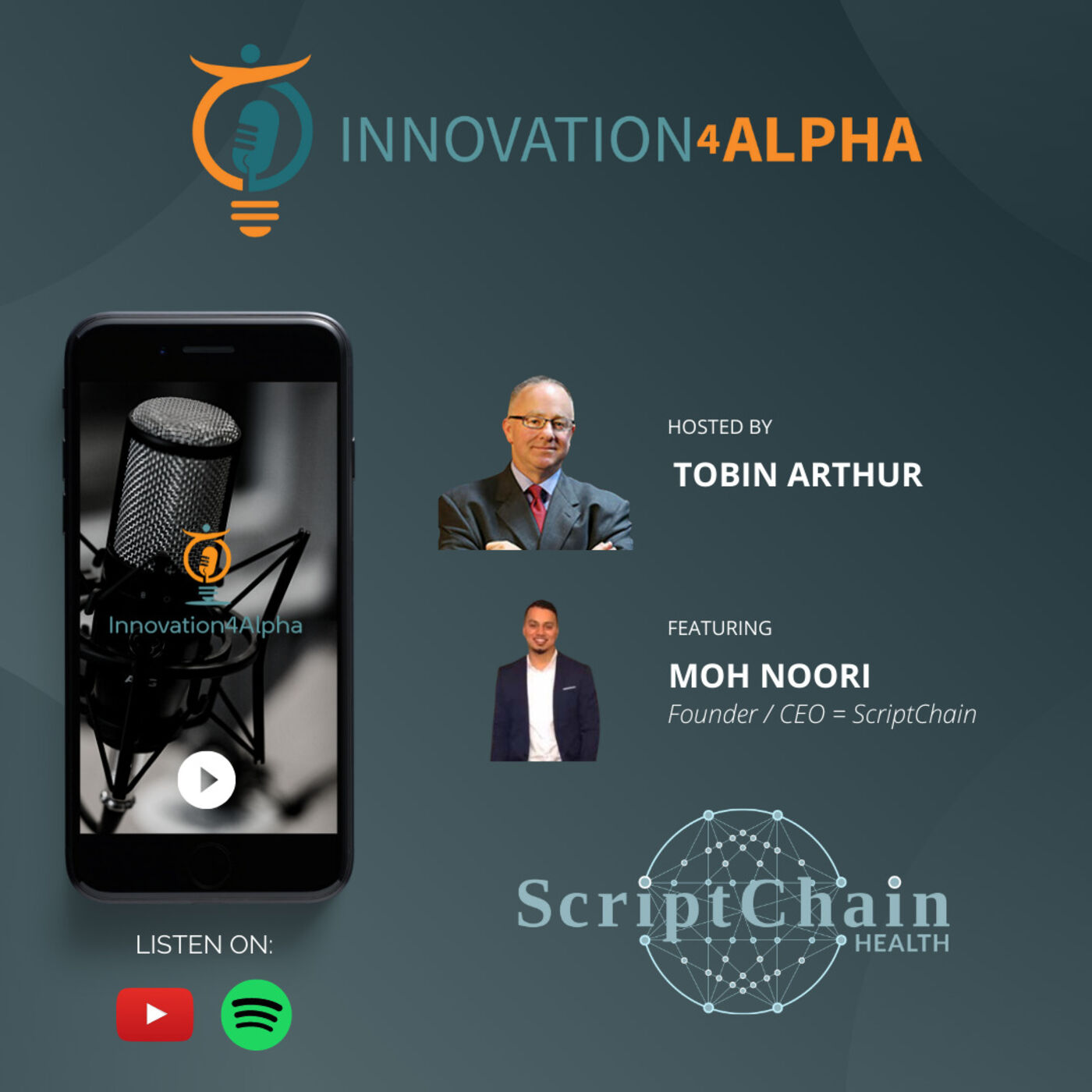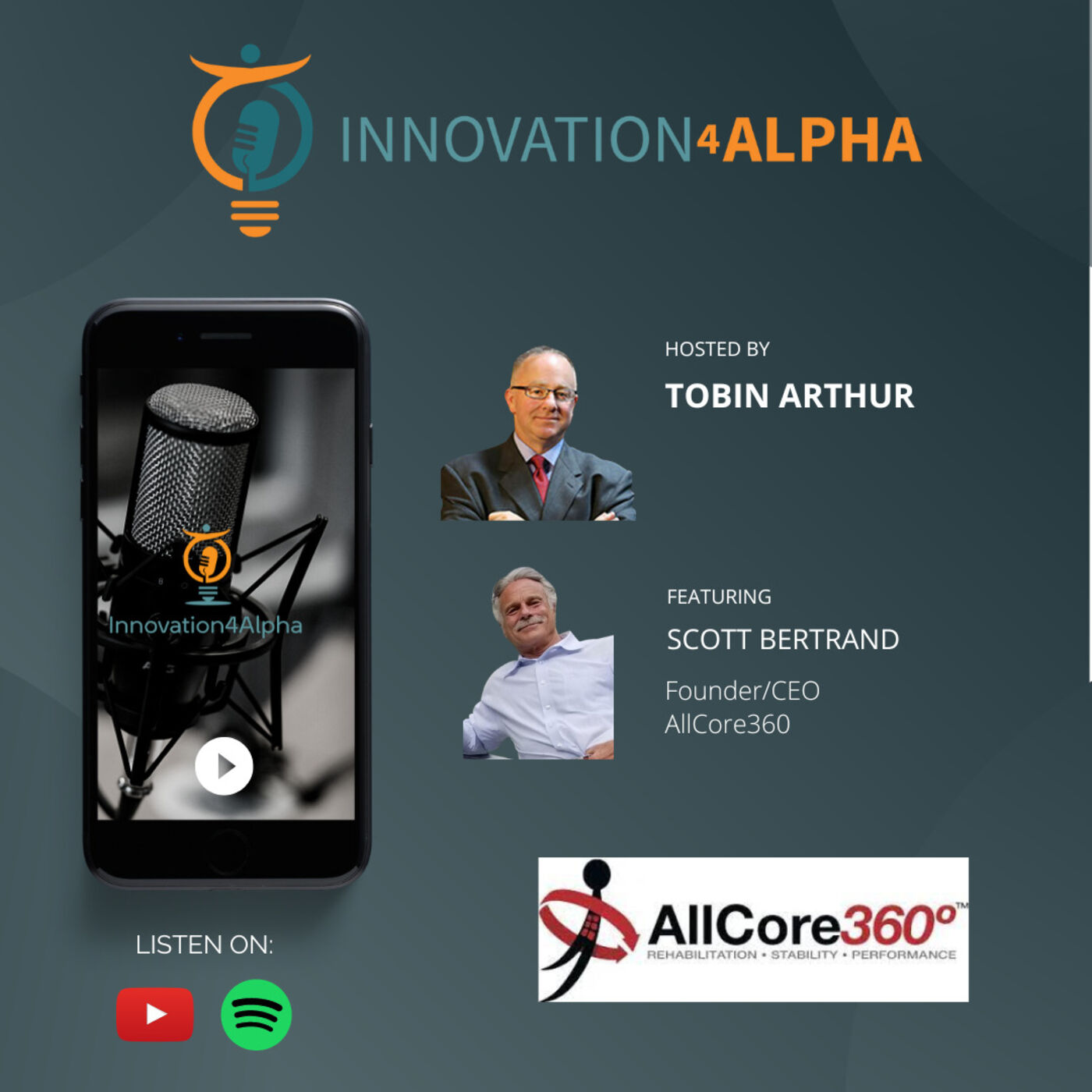Episode Transcript
<cite>Tobin Arthur:</cite>
<time>0:07</time>
<p>Hello, everybody, this is Tobin, Arthur, your host Today Dr. David Yakobi, who is a cardiac surgeon based in Israel. industry. So we're gonna have a fun conversation and talk a Yacobi, welcome to the show. Thanks for joining me.</p>
<cite>David Yakobi, MD:</cite>
<time>0:45</time>
<p>Thanks for having this will be fine.</p>
<cite>Tobin Arthur:</cite>
<time>0:47</time>
<p>Why don't you just start by giving us a sense of date.</p>
<cite>David Yakobi, MD:</cite>
<time>0:55</time>
<p>I am a cardiac surgeon adult as well as I'll start from the end of 2019. Being a senior cardiac surgeon adults as well as pediatric cases ECMO service oncologic more time with my family and something that most of the own exploration of the medical and the digital health than Eastern Europe, Western Europe, US, Canada, India, 2019, my knowledge about basic terms like brainstorming, proof it was quite poor at that time, because the only thing I knew product. I used to call my purchasing manager you would ask obviously, my answer was always okay. It's a must. But you know, these companies, I had enough courage I say courage because cage. And you know, I had my nice salary, I had a little ego. Currently, I'm operating but mainly in the private sector in digital health records and med tech companies, especially in artery disease ICU, by the way, I'm an ICU physician, as much as projects. I'm also an external expert for one of the notified deal mainly with really, really early stage innovation. So I'm really happy to talk with you guys.</p>
<cite>Tobin Arthur:</cite>
<time>3:20</time>
<p>That's a really interesting background and and like you said, for lots of reasons you've made this work. about your experience over the last couple of years, as you and more consulting? What are some of the things that you've</p>
<cite>David Yakobi, MD:</cite>
<time>3:50</time>
<p>When I just started doing this exploration, CEOs, and they would ask me, David, you know, what, we need embarrassed. I mean, what do you mean what I want to do you know, What do you mean, what I want to do? Please tell us, what do you this question, this CEO was not the only one that asked this several seals. And then I realized that as a physician in have to bring an added value. You have to say, what do you working for you're working with or you're part of being better? you cannot confine yourself solely to them. add the color you have to be a good ambassador for the company you're working easier to open doors, once you open the door for sales for easier for the other executives to take over. And I really think we must do. So this is one thing that I really wanted to</p>
<cite>Tobin Arthur:</cite>
<time>5:32</time>
<p>That's incredibly well said, I couldn't emphasize to open because of your credentials, your experience, just can't open. And so the more physicians understand that, the little bit on your observations, because you're in a unique of innovation comes out of Israel, particularly relative to Israel, and what you see in Europe, what you see in the US,</p>
<cite>David Yakobi, MD:</cite>
<time>6:14</time>
<p>So I'll start from a topic, which is kind of Obviously, most of the startups they fail, they fail not because didn't exist, or the CEO did something wrong? No, usually, matter of timing. Sometimes you have to come to the to the promote the company and will take it to the next step. it's about when do you come to this particular VC, and you have did this and that in our preclinical studies in our on the market part, some of them want you to be really good in, everything. Because early stage startups, you know, usually the seasoned CEOs they go, and they get these nice positions in the 100 employees and so on. And in Israel, we are unique in the called the Israeli the innovation authority. And this digital health hubs. And actually, this governmental don't want much, you know, they I don't know, actually the know they believe that even if the company fails, the knowledge if you want to get some contractors, so it's better for for a delivery system manufacturer you want to pay for stuff. It's better to pay in Israel, the model is the immediately I'll tell the exact amount. And this med tech hub, is is around let's say 700 or$800,000 for two to three years. milestones are determined by the same integration authority. And approach some VCs and you are ready to get your it seed seed money. But anyway, you are ready to to ask for your really crowded so there are a lot of ideas, a lot of these series around. I think that from my, from my knowledge, or I'm familiar with, that raising funds in Europe, it's, it's a bit easier is a bit are obviously some VCs. But in the US, I think that also there not do the correct market research before this idea came So it's usually it's easier to find the first, let's say, 200 it's really, it's hard, it's difficult to achieve milestones, regulatory bodies. So I think that it's a double edged sword. get a lot of confidence. But on the other hand, you have to get employees, in order to proceed with your regulatory thing. In some first in human trials. So it really depends on the company. Sometimes they put guys in the board that they have a so exits. And I think these guys, they have a lot of added not physicians, usually they are not physicians, sometimes they sometimes they have background in some would say paramedical a physician, a physician that comes from the same field into just someone in the in the Scientific Advisory Board, just communicate with the engineers, the software engineers with feedback that the physician can get, and also vice versa, the it's really, really valuable. Because talking all only on the at the end of the day, someone has to tailor the device, with it. So that's my perspective about it. Definitely are also some other scenes like Asia and, you know, Chinese</p>
<cite>Tobin Arthur:</cite>
<time>13:08</time>
<p>Again, great perspectives. Tell me a little indicated that at some point, you may want to take some of just look at the next 12 to 24 months. So a near term lens. maybe in the startup space, working with industry, and then about all of that as well as a surgery.</p>
<cite>David Yakobi, MD:</cite>
<time>13:38</time>
<p>So as I said before, I have maybe 15, or 20, hospital. For some of them, I have a solution or a partial personnel for some technology guys, that would partner with me couple of hours. That's not a problem. We know LinkedIn is already work with, or you worked for guys that you trust them something from point A to point B, you don't want to waste your you don't even know. And it's not only about you know, that he don't want him or her to jeopardize your idea to take it three or four ideas that sucked. I had it in my mind for 10 or 15 actually opened the company and they know they have an IP. So really realistic about So one of the best ways, and this is a to develop your network. And your network is not only about people that you are in intimate relationship with people that them, you know, you have lunch with them, people that you your ideas, and you are sure that no one is going to steal it the day, we are all humans, we cannot behave like robots. And tell you, you know what, I know a company that did the same, but failed. Because the management was bad because the IP was took it for a third world country and you know, the important. And you have to create some sort of family obviously you you are there for salt.</p>
<cite>Tobin Arthur:</cite>
<time>16:20</time>
<p>Very well put, our CTO has a phrase that I think is your net worth. And he talks about how there's nothing more little bit about how you build them. You talked, you mentioned you know, in many ways, this community is one all about done over time to continue to foster and build your own</p>
<cite>David Yakobi, MD:</cite>
<time>16:56</time>
<p>When I just started this exploration, I was left the hospital 20 years ago. And now is a is a very largest startup companies here in Israel. And he told me, him, Okay, please give me a list, or just make some write people, you know, you write, you introduce yourself, you know, ignore you, the ones that will actually respond, they Yesterday, I had an intro meeting an actual intermediate. meeting. And I could trace it back, one and a half years back. meeting, that one led to the other. Just imagine you talk thoughts, this is a really, really valuable, because I think value.</p>
<cite>Tobin Arthur:</cite>
<time>18:24</time>
<p>I love that. That's great advice.</p>
<cite>David Yakobi, MD:</cite>
<time>18:27</time>
<p>And also, you know, someone drops you a in Israel? You know, you don't have to be always a finder or you just do the introduction, you know, it comes back to you</p>
<cite>Tobin Arthur:</cite>
<time>18:44</time>
<p>That's right. This is very important. We talk a lot venture to guess 95% of what we do, we don't have any economics over time you reap what you sow. And sometimes they come back to the end, we want to see people be successful regardless of economically. Talk a little bit about if you would startups that spot on, in terms of the value add just a little bit a lot of experience working with startups. How do you go about we're working on or do you set up regular discussion so that approach it?</p>
<cite>David Yakobi, MD:</cite>
<time>19:44</time>
<p>Every and each company is totally different. sometimes you both companies are early stage, but one company you experience, the other company has got the CEO, which is companies. You also have to understand what is the DNA of before, what can I bring to the company, sometimes one of the Chief Medical Officer of this company, or the VP medical or position like being some kind of eligibility committee or a some companies want you to escort their r&d processes, a biomedical engineer, the team is a great team, there is a appreciation of the tissues and how their device Okay, let's intravascular device, once you've put you this device, how tissue? What, how do I anticipate the longevity of this do I think about issues of, of the potential of this device to device is? How would other physicians accept this device? that was in the operating room was in the cath labs attended sometimes, you know, the feedback can be just you know, you know, two years in order to express your thoughts and, you</p>
<cite>Tobin Arthur:</cite>
<time>22:21</time>
<p>Speaking of that, what about your colleagues, how you find, oh, you know, as an adjunct to that question, that than you observe, say, in the US, or in Israel, or in Europe? there thinking about how to make things better, faster, cheaper?</p>
<cite>David Yakobi, MD:</cite>
<time>22:51</time>
<p>Yeah, you know, I don't want to discourage medicine. But I think that this profession is, is really drives us to assist the community to help some poor from cardiovascular disease, cancer, and so on. This drive, I or the general population. And this same drive that we have, it leave our positions, because we haven't. I call it a nice reached this in Israel. But we have a nice salary, we have our from being a 18 year old, you know, enthusiastic guy that yourself at the age of 67 or 70, being you know, almost, you in the hospital and you don't have any other experiences and and Dr. Cooley and about these big surgeons and so on. But what surgeon had these ideas and was skilled enough or motivated pioneer? And why did I only you know, open the chance to the bypass surgery or or our tube replacement or replacement, I went home. So why was that? You know, dogmatic? The answer is about something, usually if you sit with your friends, they before, know that this should not be the approach. And even if before, you have to check, what did this someone do with this is not successful, why you was not successful. The third, maybe you better way. So this is really important to study from mistakes want to be innovative. But I think that most of them, they their practices and actually do only innovation. But I want to hospital, and they are dealt only with innovation. They were</p>
<cite>Tobin Arthur:</cite>
<time>26:36</time>
<p>There's a saying that reflects what you were handcuffs. And the golden handcuffs are like you said, tough to leave that particularly after having committed so many opportunities out there. And partly what we're working to do entrepreneurial activities, because everybody's going to be them. And our chief medical officers a good example, he is larger organizations. And then the other half was startups. And industry, they have budgets, they have cash, they can afford the other hand, startups have a lot of promise, it's exciting, go well, and in many cases, that's because the physicians well. I'm very excited about having you involved and getting really clearly aligned with what we're working on. You may know And it's exactly what you were talking about earlier, so many sure where to start. Even some of the language that you used, etc. Even just these, these things, intimidate people learn. It just we need a resource and a place to come direction. Maybe as we close up, are there any things that you fellow clinicians, and you've shared a bunch already, but thought for startups, and how they can better leverage relationship?</p>
<cite>David Yakobi, MD:</cite>
<time>28:59</time>
<p>I think that most of the physicians that they have their own private practice, I think that they have beginning. Sometimes when you look retro, in retrospect, you do it? For them? It was a waste of time. But those are the most with, who you are not dealing with. You know, now I have with someone I already know if this guy is serious, or what myself from point A to point B and to actually to understand bombastic ideas, and this is The US, you know, it's a huge to sell and this and that. And then you ask a question. It's know, then they don't have the answer. And you know, the them. The idea is to just see if this individual is prepared to involved in something this something can be digital health, relationship with your profession. So if it's, if device that monitors urinary output, or there are some great kidney diseases, and so on. On the other hands for startups, I very, very low amount of fuel. And I do realize that these as a full timer. But it's really important to ever physician at these r&d processes. This is very important because early boat, or Boston Scientific or Medtronic, they have only one studies and larger animal studies, you and you may also feasibility studies. If you fail, the company is closed. So correct resources towards having a physician that actually sits one month, let's refine our activities. And let's do it in a</p>
<cite>Tobin Arthur:</cite>
<time>32:15</time>
<p>It's a great piece of advice on your former point, very smart investor. And he shared with me that when he doesn't expect to find out anything, or ask them something for is to, to see how they think and how they articulate the they don't know. He said, Because I don't expect them to been solved. What I expect them to know, is here's the set of answers. And I thought that was a very interesting approach to, this has been a real pleasure, a fun start to our conversation. I it's so important that things that you've articulated both for big asset to these companies if properly integrated into the difference. It also makes it a little challenging here. You're</p>
<cite>David Yakobi, MD:</cite>
<time>33:33</time>
<p>Thanks for having me.</p>


